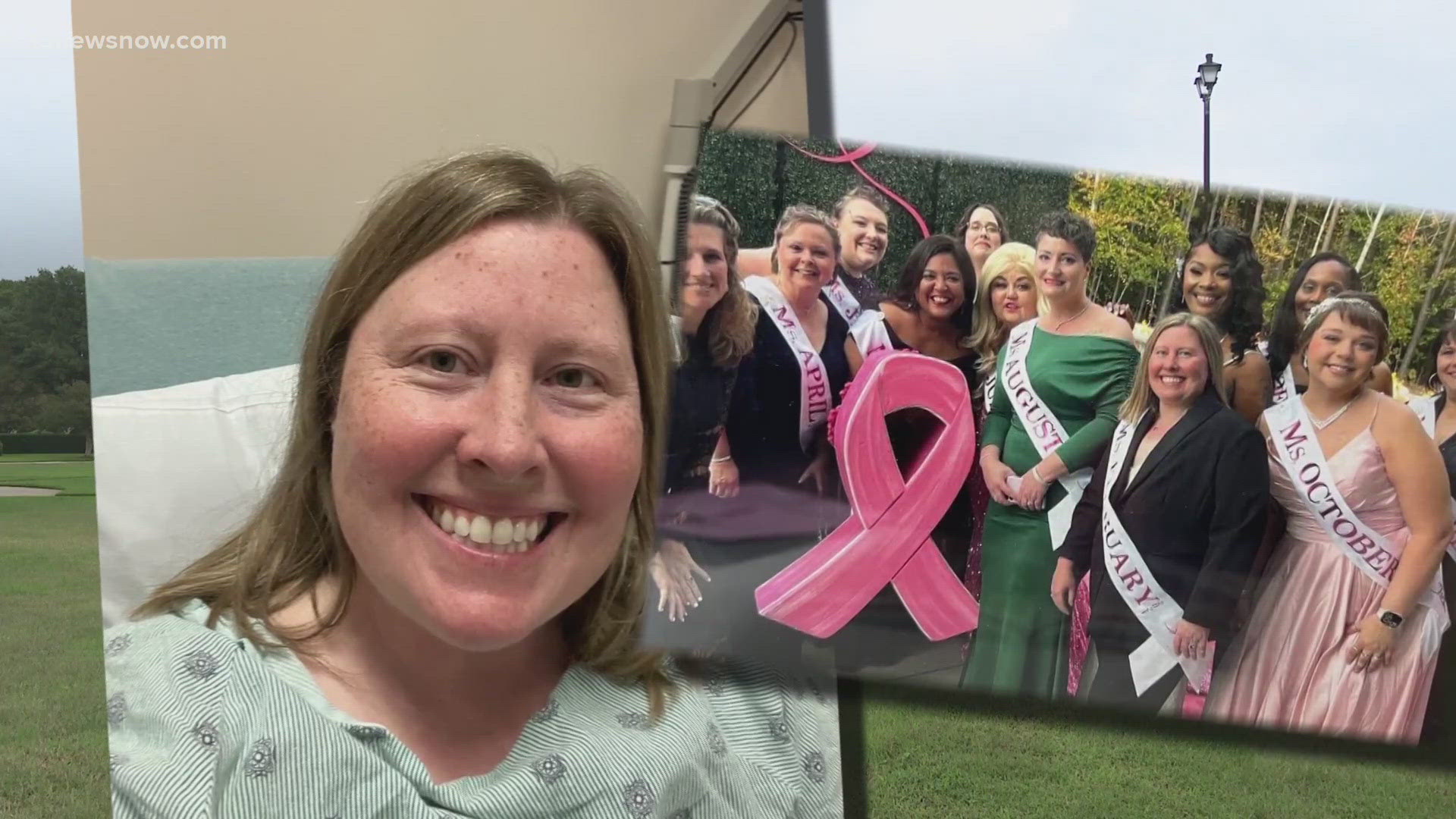CHESAPEAKE, Va. — In 2022, Rachel Anderson was juggling a demanding career as an estate planning attorney.
On Sept. 9 of that year, she said her life took an unexpected turn: she was diagnosed with ductal carcinoma in situ (DCIS), a form of breast cancer.
"First, it was like the world stopped," Anderson said. "And then, you have to figure out what you’re [going to] do."
She said her doctor told her that DCIS was considered to be "the lowest grade cancer there is," which means that the cancer cells look most like normal breast cells and are usually slow-growing.
Further testing, however, revealed that the cancer had progressed more than Anderson or her doctors initially thought, and was diagnosed as invasive ductal carcinoma in situ with lobular features.
Anderson said it did not affect the choice she already made during the biopsy process to undergo a double mastectomy, without no reconstruction.
"I didn’t want breasts back. So, I had already had a game plan," Anderson said. "I decided that breasts don’t define me. It’s a part of my body, and if something will try to kill me, it’s [got to] go."
After surgery and treatment, Anderson's body had changed, but so had her outlook on life. Once an active attorney with very little downtime, she instead decided to prioritize her health and well-being.
"It makes you reevaluate what you’ve been doing and where your life is going," Anderson said. "I hadn’t taken a break since I entered law school in August 2010. I took two bars, passed them both on the first try and have been working ever since. And law school is a full-time job... Now, I keep my office hours. I don’t let my clients run my life. I take time for me. If I feel like I need a break, I take a break. And the clients are just [going to] have to wait."
She also soon found a community of women who could relate to her experience in Here for the Girls, a nonprofit working to improve the lives of women diagnosed with breast cancer under age 51.
"I looked them up on the internet. And I said to myself, what do I need? I need support. I need education. I need to know that I’m not alone. And I found that with Here for the Girls," Anderson said. "It was a different sisterhood because our journeys are all different, but they’re the same. We’re going through the aftermath of it or you’re in it and we can all have different perspectives and help each other move forward through our personal journeys."
She shared a pivotal piece of advice she received from a fellow survivor who was leading one of the nonprofit's group sessions.
"I was like, 'I’m different. I don’t know how to explain how different I am,'" Anderson said. "And she said, 'Take a piece of paper and crumble it up. Now, unfold it and try to make it flat again. You are the paper. It’s as useful, it’s as purposeful, it has the same properties. It’s just different now. And it will never go back to how it was before.'"
Anderson said the advice encouraged her to focus more on the present. Now, two years after first hearing the words, 'you have breast cancer', she said she lives by a new word: ellipsis.
"My cancer did not end in a period; it was an ellipsis in my life. And what I do with the rest of that sentence has to be meaningful and has to be purposeful and has to bring goodness into the world," Anderson said. "I’ve learned to slow down, reach out for help when I need it, and just be better to me than I ever was."
Anderson is now a board member at Here for the Girls and one of the 12 women featured in the nonprofit's 2024 calendar called A Calendar to Live By. It shares the stories of survivors, provides breast health guidance, and offers advice to other young women diagnosed with breast cancer.

